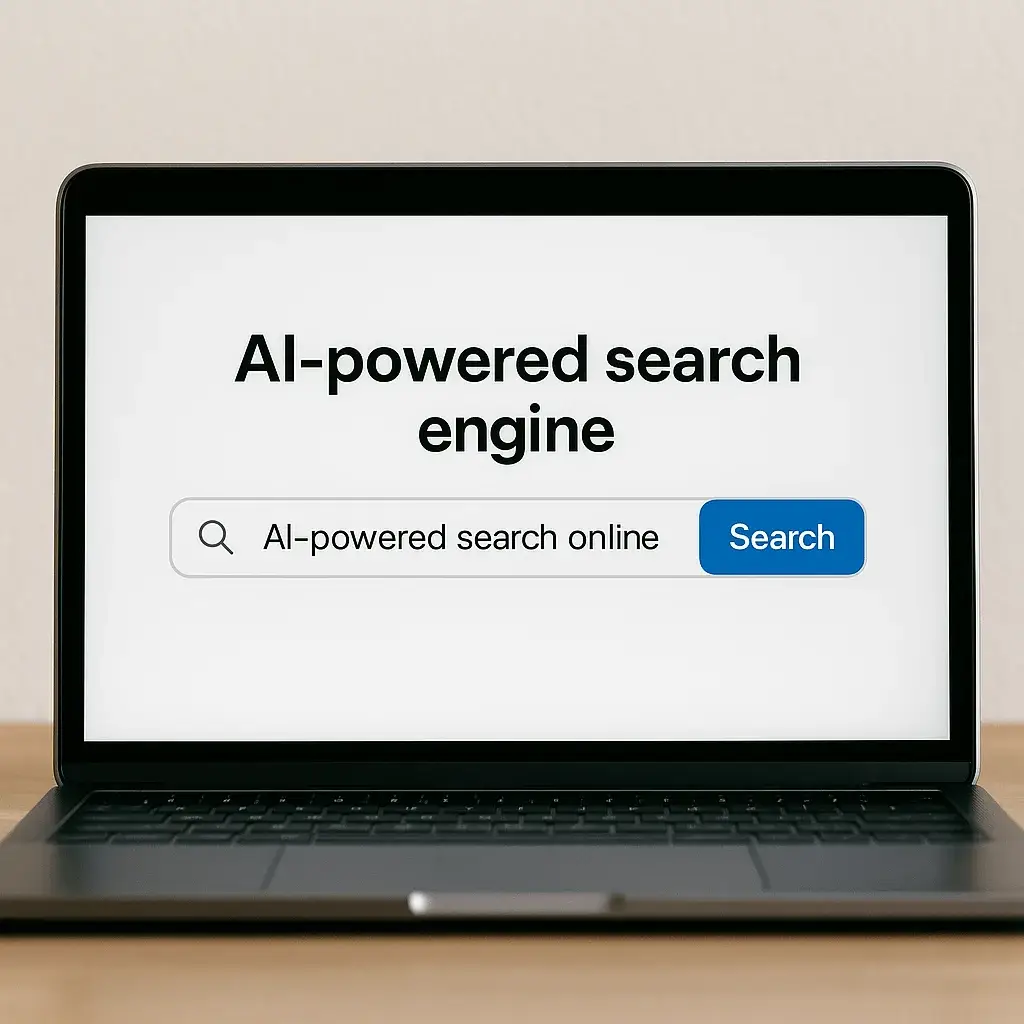Now Reading: The Rise of AI Agents: Smarter, Faster, Powerful, and Absolutely Autonomous
- 01
The Rise of AI Agents: Smarter, Faster, Powerful, and Absolutely Autonomous

The Rise of AI Agents: Smarter, Faster, Powerful, and Absolutely Autonomous
Discover how AI agents are evolving into smarter, faster, and powerful digital assistants; reshaping the future with radical autonomy and disruptive potential.
From Siri to Superbots, What’s Changing?
Remember when asking Siri to set a timer felt like living in the future? Or when Alexa first played your favorite song just by hearing your voice? Digital assistants like these were cool, no doubt but let’s be real, they’ve mostly stayed in the “helpful sidekick” lane. Handy? Yes. Life-changing? Not really.
Fast forward to today, and we’re entering a whole new era of AI agents. Think of them as digital assistants that went to college, got a promotion, and now manage entire projects without needing to ask you for every little thing.
Unlike traditional assistants that follow simple voice commands, these new AI agents such as AutoGPT or BabyAGI can actually plan tasks, make decisions, and complete multi-step goals with minimal input. It’s like upgrading from a simple calculator to a full-blown accountant.
This shift isn’t just a tech upgrade, it’s a productivity game-changer. Businesses are already tapping into these tools to automate processes, streamline operations, and even brainstorm new ideas. But don’t worry, you don’t need to be a programmer or a startup founder to get in on this.
In this post, we’re going to break down what AI agents really are (in plain English), show you how they’re being used, and help you figure out what this all means for your work, your team, or even just your daily life.
Let’s peel back the curtain on the next evolution of digital assistants and trust me, it’s way more exciting than just asking for the weather.
What the Heck Is an AI Agent, Anyway?
Okay, so let’s clear the air: what even is an AI agent?
Imagine you had a super-smart intern. You give them a task, let’s say, “Plan a product launch” but instead of coming back every five minutes to ask what to do next, they figure it out on their own. They research competitors, draft emails, schedule social posts, and maybe even write a blog about it (hi, irony). That’s basically what an AI agent does. It’s not just waiting for instructions; it’s taking initiative and gets stuff done.
Unlike your basic digital assistant that follows one command at a time (“Set an alarm,” “Play music”), AI agents like AutoGPT, BabyAGI, and AgentGPT can chain together multiple steps to reach a goal. Give them a broad objective like “Summarize the latest news and draft a newsletter,” and they’ll break it down, delegate tasks (to themselves!), and handle the whole workflow.
Here’s how it works in simple terms:
- Autonomous: They decide what to do next without needing you to hold their hand.
- Task-oriented: You give them a mission and they figure out the steps on their own.
- Self-correcting (kind of): They evaluate their own output and make tweaks, although they’re still far from perfect at this.
It’s like upgrading from a remote-controlled robot to one that can roam the house, clean up the mess, and maybe leave you a note about dinner ideas. Wild, right?
Now, these AI agents are powered by large language models (LLMs), the same kind of tech behind ChatGPT but they’ve been wrapped in extra layers of logic and memory. That’s what gives them the power to act more independently and carry out complex tasks over time.
Of course, they’re not magic. They can still get confused, spin in circles, or go totally off-track if not set up right. But when they do work well? They can save us hours, sometimes days or even weeks of time.
Next up, we’ll explore how businesses (and us regular folks) are already using AI agents to handle everything from emails to entire workflows. Spoiler: it’s not just big tech companies jumping in.
More Than a To-Do List Buddy: Real-World Use Cases
So, what are people actually doing with these AI agents? Are they just shiny toys for tech nerds, or are they pulling real weight in the world of work?
Another spoiler alert: they’re doing a lot more than reminding you to buy oat milk.
Let’s say you run a small online shop. Between customer emails, updating product listings, social media posts, and monthly reports, your to-do list probably looks like a game of whack-a-mole. This is where AI agents come in. Instead of using 10 different tools and spending hours switching between tabs, an AI agent could handle customer support replies, draft Instagram captions, and even create a sales summary, all while you grab your coffee or, dare I say, take a break.
Now, take a solo freelancer juggling multiple clients. One creative pro I chatted with uses AutoGPT to help prep client proposals. They give the AI a few bullet points, and it pulls together research, writes a draft, and even suggests pricing tiers. Not perfect out of the box, but it gets them 80% of the way there, way faster than starting from scratch.
Larger businesses are also jumping in. Some use AI agents to monitor competitors, automate reports, or manage internal help desks. HR teams are even using them to screen resumes and schedule interviews. Yep, it’s that versatile.
The point is, AI agents aren’t just hype, they’re helpful. They’re turning repetitive tasks into automated flows and making room for people to focus on what they actually want to do (or at least, the parts of work that don’t make your eyes glaze over).
Coming up next, we’ll look at both sides of the coin: the perks, the pitfalls, and a few “uh-oh” moments you’ll want to watch out for.
The Ups and Whoa’s: Perks and Pitfalls
Alright, so AI agents sound amazing, right? But before you hand over the keys to your digital life, let’s talk about the good, the bad, and the wait, what just happened?
- The Perks: Why People Are Falling in Love with AI Agents
First off, speed. AI agents can work 24/7, no snack breaks, no burnout. You can throw a project at them and while you’re making lunch, they’re chugging away, writing reports, organizing data, or managing your inbox without stress.
Second, they’re scalable. Got 100 tasks? Cool, they’ll tackle them in parallel. Need to process customer feedback from thousands of reviews? Done. For businesses, this means cutting down time and costs in ways that just weren’t possible before.
And maybe most exciting? They’re creative little weirdos. Give them space, and they’ll brainstorm content ideas, generate new business names, even write bedtime stories in pirate slang (yes, really). They’re not just logic machines—they’re creative collaborators.
- The Pitfalls: When AI Goes Off the Rails
Now, here’s the “whoa” part. These agents aren’t perfect. They can “hallucinate” facts (make stuff up), get stuck in loops, or completely misread a task. Imagine asking your AI to summarize a blog post and it ends up writing a sci-fi novel instead. It happens now and then.
There’s also the issue of accountability. If your AI agent accidentally sends a confusing message to a client or pulls incorrect data into a report, who’s responsible? (it’s still you.)
And don’t forget data privacy. Depending on how you set things up, your agent might access sensitive info. So, keeping guardrails in place is key.
The trick here is to think of AI agents not as replacements for human judgment, but as high-powered helpers. They’re like your assistants with infinite energy… but questionable common sense. They still need oversight and a human touch.
Next, let’s look at the bigger question: Are we actually ready for this shift? Because AI agents aren’t just tools, they’re changing how we work altogether.
Are We Ready for This?
Let’s be honest, AI agents sound awesome and a little intimidating but are we actually ready to work alongside these digital teammates?
Short answer: kinda. Long answer: it depends on how open we are to change.
We’re not just adding a new app to our tech stack here, we’re talking about a shift in how work gets done. These agents don’t wait for instructions like traditional tools. They think (in their own weird AI way), plan, and act. That means we have to get better at delegating, defining goals clearly, and most of all, trusting the process (while still keeping an eye on it).
For solo workers and small teams, it’s a mindset shift: you’re not just using a tool, you’re collaborating with it. That might mean learning some prompts, testing workflows, and being okay with a little trial-and-error.
For businesses, it’s about culture. Are your systems ready for automation? Are your teams open to experimenting without fearing they’ll be replaced? AI agents work best when they support humans, not replace them.
And here’s the good news: you don’t have to dive in headfirst. Start small. Pick one process, such as summarizing emails or generating content ideas and let an agent help. Learn how it thinks. Nudge it when it wanders, then grow from there.
The future of work is getting better tools and figuring out how to work with them.
Next up, we’ll wrap things up and share a few ways you can start exploring AI agents today.
What Can You Do Next?
So, here we are. From Siri setting timers to AI agents running multi-step business tasks, we’ve come a long way. These new digital teammates like AutoGPT, BabyAGI, and others aren’t just smarter assistants. They’re a whole new category of tech: autonomous, creative, and surprisingly capable.
We talked about what makes AI agents special: their ability to think ahead, carry out complex tasks, and learn on the fly. We looked at real-world examples from solo entrepreneurs to entire teams using them to boost productivity, automate the boring stuff, and even spark creative ideas. And yep, we also covered the messy bits: hallucinations, glitches, and the very real need for human oversight.
But here’s the bottom line: you don’t need to be a tech wizard to start using AI agents. You just need curiosity, a little patience, and a willingness to experiment.
So what can you do next?
- Pick one task that eats up your time (writing summaries, managing data, drafting emails).
- Try out an AI agent tool like AutoGPT or AgentGPT (there are tutorials out there and tons of other tools you can use).
- See what it can do. Adjust. Learn. Grow with it.
And if that feels overwhelming? No stress. Start slow, or reach out to someone who can guide you. You can also find more resources on our website. The point isn’t to be perfect, it’s to explore what’s possible.
AI agents aren’t the future anymore, they’re here. And whether you’re a solo creator, a team lead, or just someone tired of repetitive work, this might just be the upgrade you’ve been waiting for.
Now go try one and let it surprise you!














